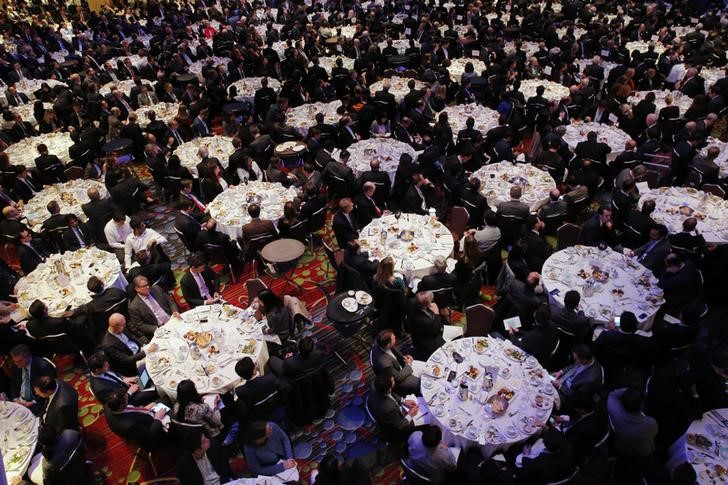By Jonathan Spicer
NEW YORK (Reuters) - Federal Reserve Chair Janet Yellen said on Tuesday the U.S. central bank should proceed only cautiously as it looks to raise interest rates, pushing back on a handful of her colleagues who have suggested another move may be just around the corner.
In her first comments since the Fed decided to hold rates steady two weeks ago, Yellen said inflation has not yet proven durable against the backdrop of looming global risks to the U.S economy, including still-low oil prices and concerns over China.
The comments, which boosted stocks and bonds and hit the dollar, come as healthier measures of U.S. inflation and manufacturing have prompted some other Fed officials to say another policy tightening could come as soon as April.
But Yellen was not about to change tack just yet.
"Given the risks to the outlook, I consider it appropriate for the Committee to proceed cautiously in adjusting policy," she said of the Fed's policy-making Federal Open Market Committee.
At its March policy meeting, the Fed had nodded to an overseas slowdown and early-year market turmoil in justifying a pause to its policy tightening. At the time, Fed officials also downgraded economic expectations and predicted only about two more rate hikes this year, down from a December prediction of four.
Yellen said she still expected that headwinds from weak growth abroad, low oil prices and uncertainty over China would abate and allow the U.S. recovery to continue alongside a "gradual" series of rate hikes.
But, she added, the overseas developments "imply that meeting our objectives for employment and inflation will likely require a somewhat lower path for (rates) than was anticipated in December," when the Fed hiked for the first time in a decade.
In response to her comments at the Economic Club of New York, the dollar dropped to a one-week low while equities and gold rebounded.
U.S. inflation measures have shown some recent strength, with the Fed's preferred annual measure flat at 1.7 percent in February, though still below its target of 2 percent. Another closely watched 12-month measure was up 2.3 percent from a year ago.
That, along with a partial rebound in oil prices and relative tranquility in global markets, appear to have given some other Fed officials confidence that the economy can soon absorb tighter policy after seven years of near zero rates.
San Francisco Fed President John Williams, a close ally of Yellen who is usually among the core of decision-makers, said earlier on Tuesday in Singapore that the U.S. central bank should stay on track with its tightening plan.
That echoed public comments last week by Atlanta Fed President Dennis Lockhart, another centrist, and James Bullard of the St. Louis Fed, who has a vote on policy this year. Those so-called hawkish views had convinced some investors that the Fed was poised to raise rates at policy meetings in April or June.
On the other hand, sluggish consumer spending and a large trade gap last month has slowed the Atlanta Fed's closely watched estimate of economic growth to only 0.6 percent in the first quarter of the year.
Diane Swonk, founder of DS Economics in Chicago, said Yellen's "key points today emphasize her bias to raise rates later, not sooner, and more importantly, to sideline inflation hawks who want to raise rates in April."
Futures traders expect the Fed to wait until November to raise rates another 0.25 percent, from around 0.37 percent now, according to CME Group (NASDAQ:CME).
Yellen, who has run the Fed for more than two years, said policymakers held rates steady this month in part to "get ahead" of an overseas slowdown even though the U.S. economy has so far proven "remarkably resilient."

On a busy day for the world's most influential central bank, Dallas Fed President Robert Kaplan used similar language to describe his outlook, saying the Fed should proceed gradually and cautiously on rate hikes.